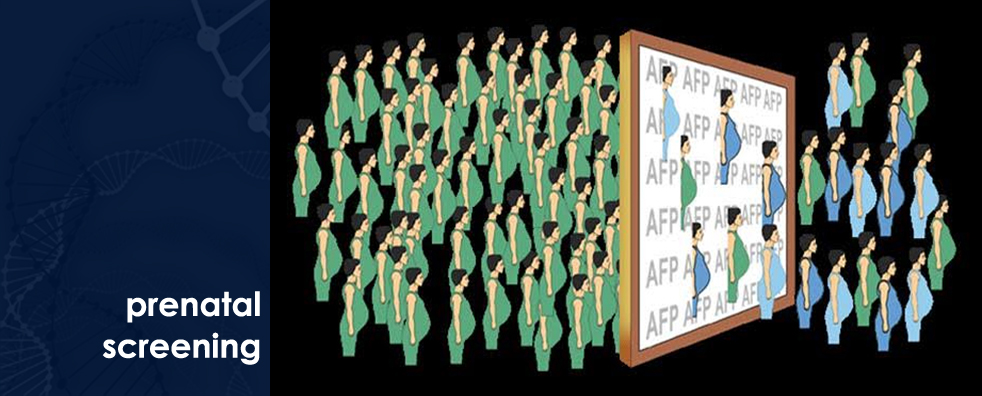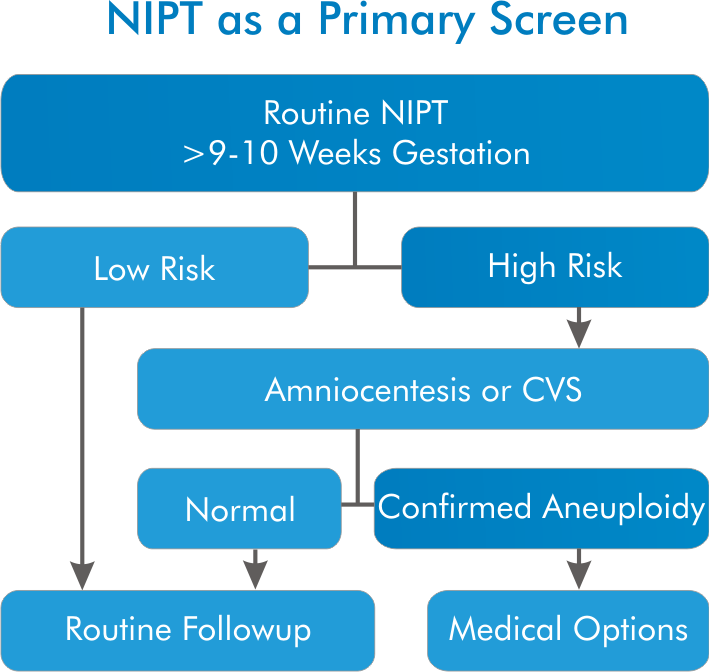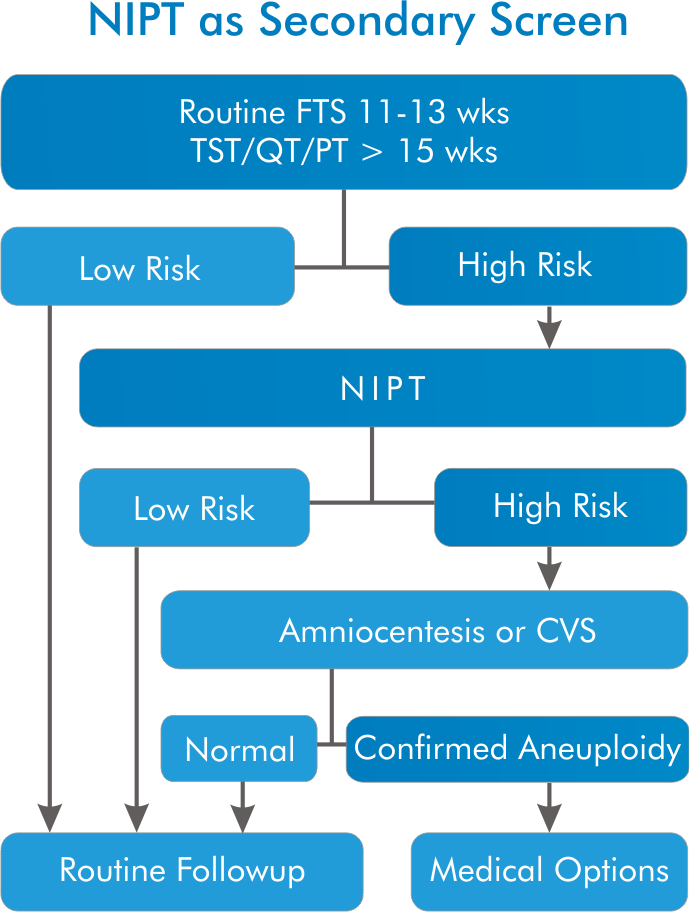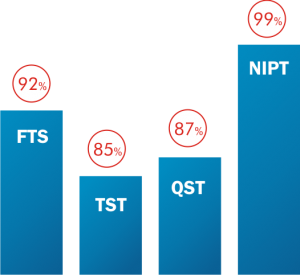
Aneuploidies are major causes of perinatal death and childhood handicap. Prenatal Screening is the process of surveying the population, using a specific marker or markers and defined screening cut-off levels, to identify the pregnancies that are at high risk for Down syndrome and other aneuploidies.
Biochemical marker based Maternal Serum Prenatal Screening
Risk is identified for Down syndrome, trisomy 18, trisomy 13 and open neural tube defects (ONTDs). High-risk pregnancies are either offered prenatal diagnosis by invasive testing such as Amniocentesis OR are offered non invasive prenatal screening (NIPT) tests as secondary screening. Test sensitivity varies from 85% to 93%.

Cell free fetal DNA based Non Invasive Prenatal Screening (cffDNA NIPT)
Uses cell-free fetal DNA in identifying risk for Aneuploidies with sensitivity as high as 99%. GeneTech offers a variety of non invasive prenatal screening options and uses latest technologies such as Next Generation Sequencing (NGS), qPCR (Quantitative PCR) and can detect risk in twin, triplet, donor oocyte, and IVF pregnancies.

List of Prenatal Screening Tests
Maternal Serum Markers
| S.No | Test Name | TAT (Days) |
| 1 | AFP on Amniotic Fluid | 3 |
| 2 | AFP on Maternal Serum | 3 |
| 3 | First Trimester Prenatal screening (PAPP, beta hCG + NT ultrasound marker) | 3 |
| 4 | Triple Screen Test (AFP, beta hCG, Unconjugated Estriol | 3 |
| 5 | Quadrapule Prenatal Screening Test (AFP, beta hCG, unconjugated Estriol, Inhibin) | 4 |
| 6 | Penta Screen Test (AFP, beta hCG, unconjugated Estriol, Inhibin, PLGF) | 4 |
Cell Free Fetal DNA
| S.No | Test Name | TAT (Days) |
| 1 | Targeted NIPT – Trisomy 21 | 7 |
| 2 | Targeted NIPT – Trisomy 13, 18, 21 | 7 |
| 3 | Targeted NIPT – Trisomy 13, 18, 21, X, Y | 7 |
| 4 | NIPT Aneuploidy – All Chromosomes | 7 |
| 5 | NIPT Aneuploidy and Microdeletions – All Chromosomes | 7 |
Sample Collection:
Maternal Serum Markers – 3ml of Peripheral Blood in RED TOP Vacutainer
NIPT – 8 to 10ml Peripheral Blood in Streck Tube

Prenatal Screening Test Sensitivity
NIPT Advantages
- Reduces number of invasive procedures
- Reduces risk to fetus
- Low false positive rate
- High detection rate
- Reduces anxiety in pregnancy
- Looks at all chromosome aneuploidies
- Primary or secondary screen options
- Screens for twin or triplet pregnancies
- Works for donor ova pregnancies
